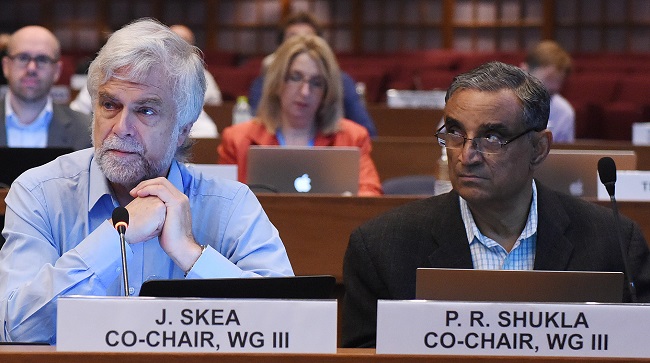Experts from the Intergovernmental Panel on Climate Change (IPCC) will work virtually from April 14 to 19, 2020 to advance their work on the Working Group III contribution to the Sixth Assessment Report.

Over 270 experts from 65 countries will come together online for one week to start preparing a second draft of the report, which is currently due to be finalised in September 2021. The meeting was originally due to be hosted by the Ministry of the Environment, Government of Ecuador, but will now be run online because of the COVID-19 pandemic.
IPCC Working Group III is responsible for assessing the mitigation of climate change – responses and solutions to the threat of dangerous climate change by reducing emissions and enhancing sinks of the greenhouse gases that are responsible for global warming.
The Sixth Assessment Report (AR6) will examine topics such as the link between consumption and behaviour and greenhouse gas emissions, and the role of innovation and technology.
The report will assess the connection between short- to medium-term actions and their compatibility with the long-term temperature goal in the Paris Agreement. It will assess mitigation options in sectors such as energy, agriculture, forestry and land use, buildings, transport and industry, and consider these in the context of sustainable development.
“This is the first time that the IPCC has conducted a virtual Lead Author Meeting. I would like to acknowledge the commitment and dedication of our authors and thank the Co-Chairs of Working Group III for making this happen,” said IPCC Chair Hoesung Lee.
“While we know this can’t achieve the same results as a meeting in person over a week, it will show what the IPCC can achieve at a distance,” he added.
Mr Lee also thanked the Government of Ecuador for offering to host the original meeting and continuing to support the virtual gathering, as well as their general support for the IPCC.
“We would like to pay tribute to our authors and members of the Working Group III Technical Support Unit, who have supported this effort and made this virtual meeting a reality,” said Priyadarshi R. Shukla, Co-Chair of Working Group III.
“Despite the variety of circumstances our authors and scientists are facing in their home countries at this time, they will be persisting with their work and continuing to prepare the Working Group III contribution to the Sixth Assessment Report,” he said.
The Second Order Draft is currently scheduled to open for Government and Expert Review from 19 October to 13 December 2020, along with the first draft of the Summary for Policymakers. The IPCC Panel is currently due to consider the Working Group III contribution to the IPCC Sixth Assessment Report at a plenary session on 6 to 10 September 2021.
“This virtual meeting will take quite a different format to previous Lead Author Meetings: recognizing the challenges, we have scaled back on ambition and spread some activities beyond the main meeting,” said Jim Skea, Co-Chair of Working Group III. “The overall aim is to ensure coherence across the whole report and ensure that all of the original objectives are ultimately met.”
The agreed outline of the report can be found here. The list of authors of the report can be found here.
Pending decisions on the response to the COVID-19 pandemic, each of the three IPCC Working Groups is currently due to release their contributions to the Sixth Assessment Report in 2021. A Synthesis Report, due for release in 2022, will integrate them together with the three special reports that the IPCC has produced in the current assessment cycle.
The intention is to release the Synthesis Report in time to inform the 2023 Global Stocktake by the United Nations Framework Convention on Climate Change (UNFCCC) when countries will review progress towards the Paris Agreement goals, including the goal of keeping global warming to well below 2°C while pursuing efforts to limit it to 1.5°C.
